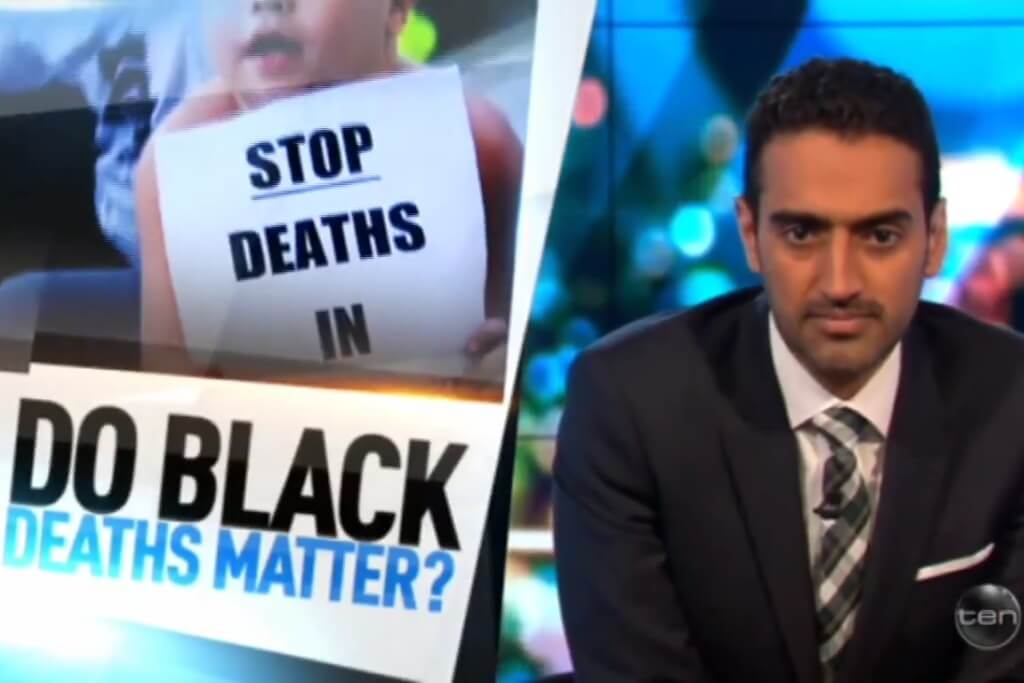Waleed Aly Asks “Do Black Deaths Matter?” In A Powerful Segment On Indigenous Deaths In Custody
"The truth is, we still have the death penalty."

Between the sickening revelations of abuse at the Don Dale Youth Detention Centre, and the death of 36-year-old mother of four Rebecca Maher in an NSW police cell last month, Australia is currently being confronted with some extremely uncomfortable questions about the way that indigenous people in treated by our legal system. True to form, on last night’s episode of The Project, Waleed Aly tackled the issue head on.
Sparked by Maher’s death, Aly used his Something To Talk About segment to dive into the alarming statistics surrounding indigenous incarceration, which reveal that Indigenous Australians are more than 13 times more likely than to find themselves in prison than non-Indigenous Australians. As Aly puts it: “we are really good at locking up indigenous people in this country.”
Since 1991 Royal Commission into #Aboriginal Deaths in Custody #Indigenous people have gone from 14% to 28% of prison population. #maitland
— Kon Karapanagiotidis (@Kon__K) August 16, 2016
He also spoke about the nearly 400 Aboriginal and Torres Straight Islander deaths that have occurred in police custody since the 1991 Royal Commission into this very issue.
“I learned in school that the last person to receive the death penalty in Australia was Ronald Ryan, hanged in 1967,” Aly said. “But the truth is, we still have the death penalty. Clearly death is still a penalty we are OK with in this country.”
Maher’s death, which occurred on July 19 and is currently the subject of a coroner’s inquiry, was the first incident of an indigenous person in NSW dying in police custody since 2000. Aly and his co-writer on the segment Tom Whitty attribute the state’s relatively good record to the Custody Notification Service (CNS), which alerts the Aboriginal Legal Service (ALS) whenever an indigenous person is placed in custody.
The reason that the CNS was not used in Maher’s case was because she had not technically been placed under arrest, but was instead being “detained for her own safety,” after it appeared to police that she was intoxicated. The morbid irony, Aly remarked, was that “had she actually committed a crime, she’d have more chance of being alive today.”
According to Aly, the CNS is currently in place in NSW and the ACT at a cost of just over $500,000 a year. However the service has not been rolled out nationally, despite it being one of 339 recommendations made by the 1991 royal commission.
Aly concluded his segment by drawing parallels to the current Black Lives Matter movement in the United States. “In other parts of the world, people are protesting that black lives matter,” he said. “Maybe we’re not at a point where we can fully accept that. But what I want to ask you, right now, knowing everything I’ve just told you, is do black deaths matter?”
The results of the coronial inquiry into Maher’s death are expected to be handed down early next year.